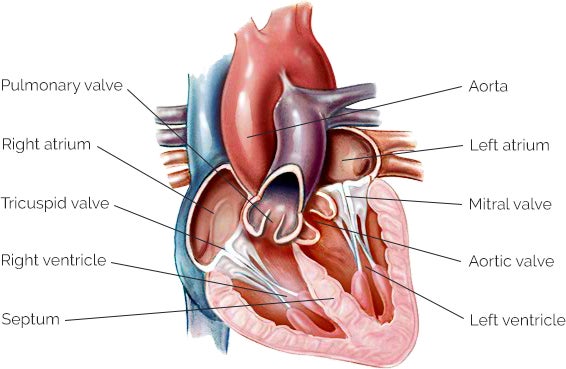
Heart Basics
Basic anatomy and function of the heart
The heart is a muscular organ that pumps blood to all the tissues in your body through a network of blood vessels. The right side of the heart pumps blood through the lungs where it picks up oxygen. The left side of the heart receives the blood containing oxygen and pumps the blood to the rest of your body

Your heart has four chambers and four valves that regulate blood flow:
| Anatomy | Function |
| Pulmonary valve | Controls the blood flow from the right ventricle through the pulmonary artery and into the lungs |
| Right atrium | The chamber that collects oxygen-poor blood returning from your body |
| Tricuspid valve | Controls blood flow from the right atrium into the right ventricle |
| Right ventricle | The chamber that pumps oxygen-poor blood through the pulmonary valve and into your lungs |
| Septum | A wall of muscle separating the left and right sides of the heart |
| Aorta | The largest artery in the body. Carries oxygen-rich blood from your heart to your body |
| Left atrium | The chamber that collects oxygen-rich blood returning from your lungs |
| Mitral valve | Controls the flow of oxygen-rich blood from your left atrium to your left ventricle |
| Aortic valve | Controls blood flow from your left ventricle to your aorta |
| Left ventricle | The largest and strongest chamber of your heart that pumps oxygen-rich blood through the aortic valve |